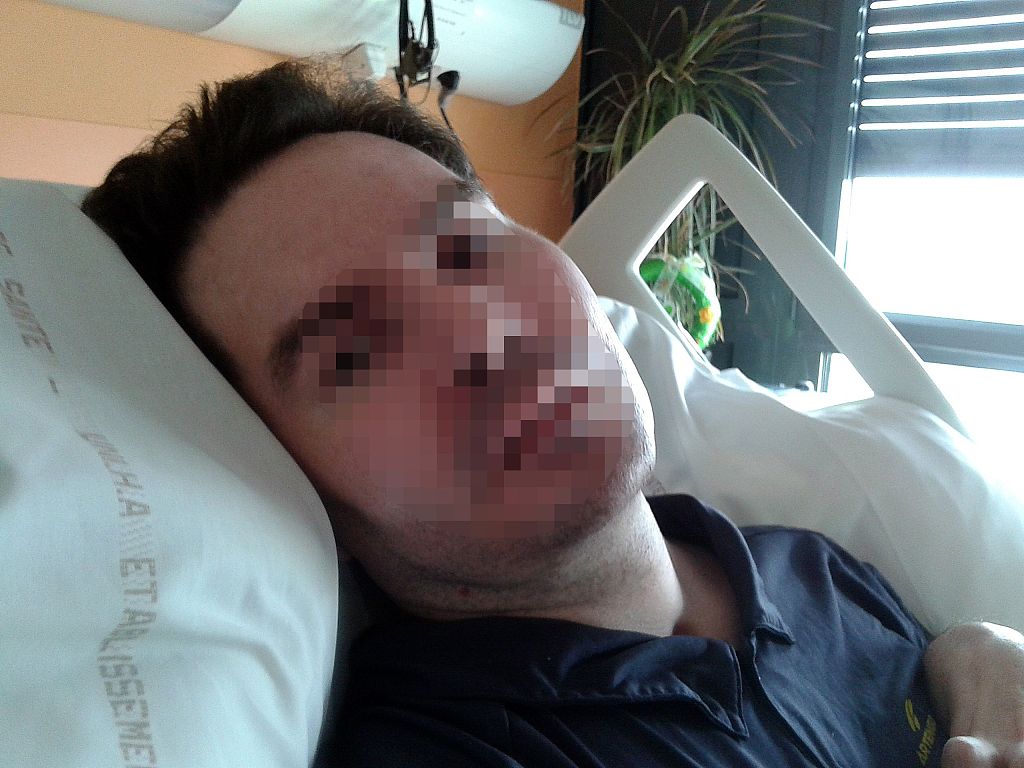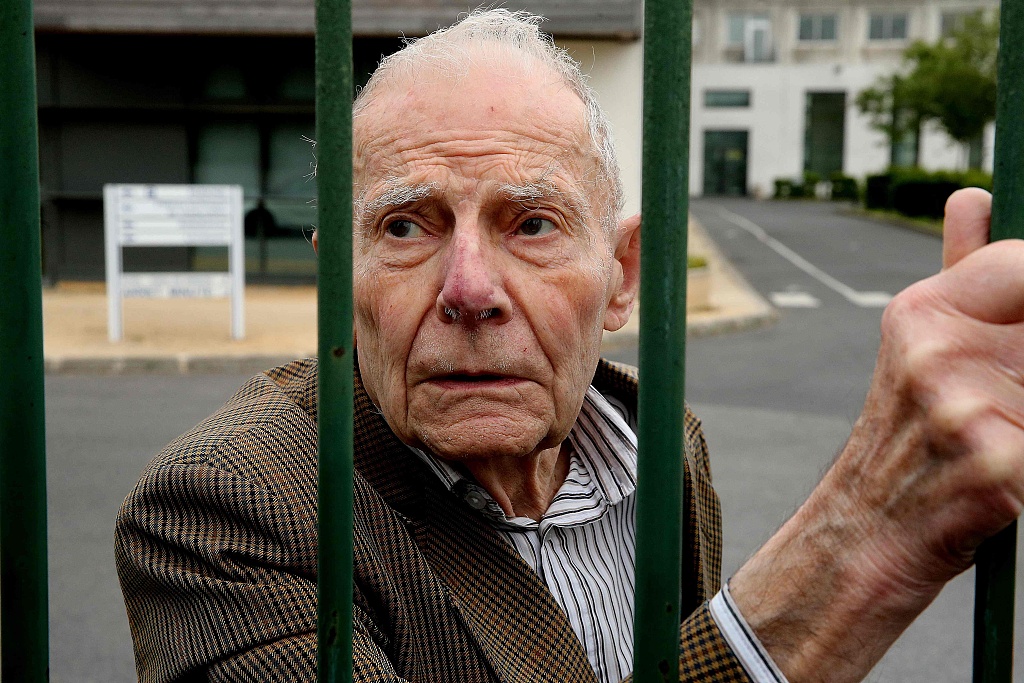Doctors said Tuesday they will begin ending life support treatment for Frenchman Vincent Lambert who has been in a vegetative state for 10 years.
Here are the major events in a six-year legal dispute over his plight that has divided his family and French opinion:
- Vegetative state -
Lambert, a former psychiatric nurse, suffers severe brain damage in a car accident in 2008 that leaves him a tetraplegic at the age of 32.

In this handout file photo taken on June 3, 2015 and released by the family of Vincent Lambert shows Vincent Lambert, a quadriplegic man on artificial life support at the CHU of Reims. (Photo: VCG)
In April 2013, the hospital initiates the procedure to cut off life-sustaining intravenous food and water, in line with the wishes of his wife and six of his eight siblings.
His wife and others say Lambert made clear before the accident that he would not want to be kept alive artificially in such circumstances, though this was never put in writing.
But the move is contested by his Catholic parents and two other siblings, who urge a local court to rule that life support should continue, which it does in May 2013.
- Taken to higher courts -
In January 2014 doctors inform the family for a second time they will stop feeding Lambert intravenously, in line with France's "passive" euthanasia law which allows doctors to withdraw support for seriously ill or injured patients with no chance of recovery.
But five days later a court rules his treatment must continue, on the request of his parents.
His wife and the hospital appeal to France's supreme administrative court, the State Council, which orders a new medical assessment.
After experts determine that Lambert cannot recover and his condition has even worsened, the council rules in June 2014 that he should be allowed to die.
Lambert's parents take the case to the European Court of Human Rights in Strasbourg, which backs the State Council's decision in June 2015.
In July 2015, the hospital announces for a third time its intention to start procedures to end life support, but days later doctors refuse to follow through, citing security fears as the case enrages pro-life activists.
- Off and on again -
In September 2017 doctors say they will initiate a new bid, the fourth, to withdraw the life support. Lambert's parents again appeal to the State Council, but they are rejected in January 2018.
They again go to court and request a new medical assessment, which in November concludes that Lambert's chronic vegetative state is irreversible.
In January 2019, a court near Reims upholds the decision to withdraw life support. Lambert's parents renew their appeal to the State Council and the Europe court, but in vain.
In May, a UN committee on disabled rights asks France to suspend any action while it studies the case, though the government says it is not bound by the request.
On May 20, doctors begin the process of ending life support, prompting Pope Francis to say on Twitter that "those who live with severe illness" should have life protected until "its natural end".

Pierre Lambert, the father of Vincent Lambert, a quadriplegic man who has been in a vegetative state for the last decade, speaks to medias out of Sebastopol hospital in Reims on May 20, 2019 after doctors began switching off the life support. (Photo: VCG)
Hours later the Paris Court of Appeal orders that life support treatment be resumed for six months to allow the UN committee to complete its review.
On June 28, France's highest appeals court rules that life support can be turned off in what is hailed as a definitive legal judgement by a lawyer representing Lambert's wife Rachel.


